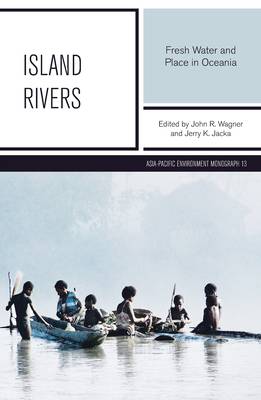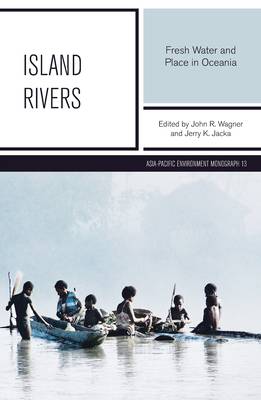
Door een staking bij bpost kan je online bestelling op dit moment iets langer onderweg zijn dan voorzien. Dringend iets nodig? Onze winkels ontvangen jou met open armen!
- Afhalen na 1 uur in een winkel met voorraad
- Gratis thuislevering in België vanaf € 30
- Ruim aanbod met 7 miljoen producten
Door een staking bij bpost kan je online bestelling op dit moment iets langer onderweg zijn dan voorzien. Dringend iets nodig? Onze winkels ontvangen jou met open armen!
- Afhalen na 1 uur in een winkel met voorraad
- Gratis thuislevering in België vanaf € 30
- Ruim aanbod met 7 miljoen producten
Zoeken
Island Rivers
Fresh Water and Place in Oceania
€ 59,95
+ 119 punten
Omschrijving
Anthropologists have written a great deal about the coastal adaptations and seafaring traditions of Pacific Islanders, but have had much less to say about the significance of rivers for Pacific island culture, livelihood and identity. The authors of this collection seek to fill that gap in the ethnographic record by drawing attention to the deep historical attachments of island communities to rivers, and the ways in which those attachments are changing in response to various forms of economic development and social change. In addition to making a unique contribution to Pacific island ethnography, the authors of this volume speak to a global set of issues of immense importance to a world in which water scarcity, conflict, pollution and the degradation of riparian environments afflict growing numbers of people. Several authors take a political ecology approach to their topic, but the emphasis here is less on hydro-politics than on the cultural meaning of rivers to the communities we describe. How has the cultural significance of rivers shifted as a result of colonisation, development and nation-building? How do people whose identities are fundamentally rooted in their relationship to a particular river renegotiate that relationship when the river is dammed to generate hydro-power or polluted by mining activities? How do blockages in the flow of rivers and underground springs interrupt the intergenerational transmission of local ecological knowledge and hence the ability of local communities to construct collective identities rooted in a sense of place?
Specificaties
Betrokkenen
- Uitgeverij:
Inhoud
- Aantal bladzijden:
- 266
- Taal:
- Engels
- Reeks:
- Reeksnummer:
- nr. 13
Eigenschappen
- Productcode (EAN):
- 9781760462161
- Verschijningsdatum:
- 18/06/2018
- Uitvoering:
- Paperback
- Formaat:
- Trade paperback (VS)
- Afmetingen:
- 153 mm x 234 mm
- Gewicht:
- 494 g

Alleen bij Standaard Boekhandel
+ 119 punten op je klantenkaart van Standaard Boekhandel
Beoordelingen
We publiceren alleen reviews die voldoen aan de voorwaarden voor reviews. Bekijk onze voorwaarden voor reviews.










